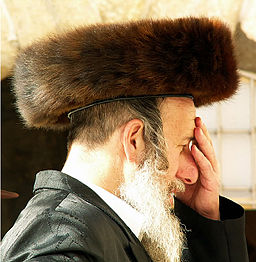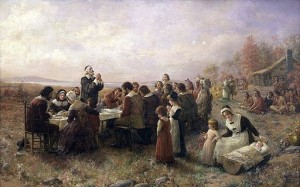
“Who Are You?” asks members of Culture on the Edge to reflect on one of their own many identities (whether national, gendered, racial, familial, etc.), theorizing at the same time the self-identification that they each chose to discuss.
When I identify as a vegetarian, I occasionally face questions such as “What do you eat?” or “How can you give up bacon?” Those questions and related experiences reflect the dominance of meat within contemporary American culture, at least among some. In some parts of Asia, those who identify as vegetarians typically do not hear such questions because vegetarian cuisine is much more common and has been for a long time. Continue reading “Who Are You? I’m a Vegetarian”


 Our reactions to events are products, in many ways, of the ways the information about the event has been framed. Despite rhetoric of individual freedom, those who produce information have a huge influence.
Our reactions to events are products, in many ways, of the ways the information about the event has been framed. Despite rhetoric of individual freedom, those who produce information have a huge influence.  Recognizing the variety of calendars around the world, and thus the different occasions for marking a new year, illustrates the arbitrariness of time and our systems of marking time, which Russell McCutcheon has highlighted recently (
Recognizing the variety of calendars around the world, and thus the different occasions for marking a new year, illustrates the arbitrariness of time and our systems of marking time, which Russell McCutcheon has highlighted recently ( A brief news story on
A brief news story on 
 What is the nature and benefit of prayer? That question is at the heart of an exchange last month between Leon Wieseltier, the literary editor of the New Republic, and Tanya Luhrmann, a Stanford University professor of Anthropology. In “
What is the nature and benefit of prayer? That question is at the heart of an exchange last month between Leon Wieseltier, the literary editor of the New Republic, and Tanya Luhrmann, a Stanford University professor of Anthropology. In “ Some Thanksgiving thoughts for the U.S. Thanksgiving holiday. Despite various corrections and critiques (e.g.,
Some Thanksgiving thoughts for the U.S. Thanksgiving holiday. Despite various corrections and critiques (e.g., 
 The Pew Research Center has a blog, named the
The Pew Research Center has a blog, named the